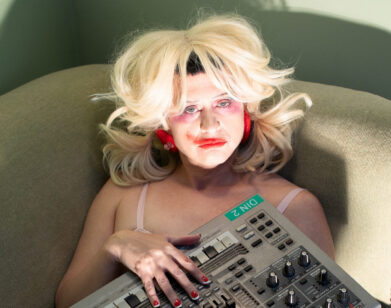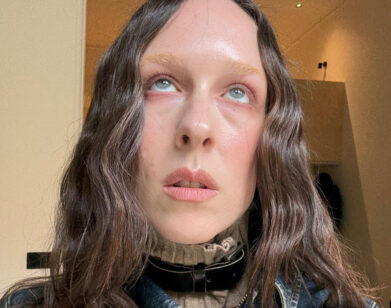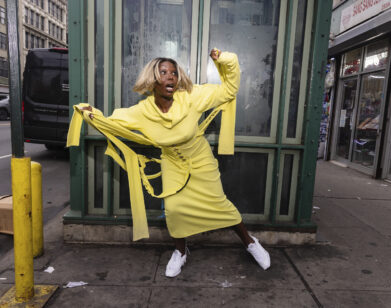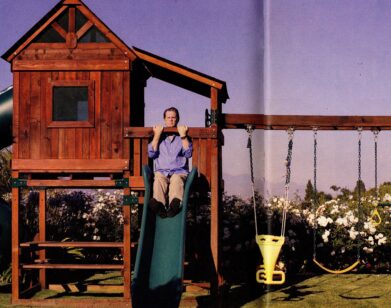the drake effect
Lil Durk and Dwyane Wade Discuss How Self-Doubt Breeds Success
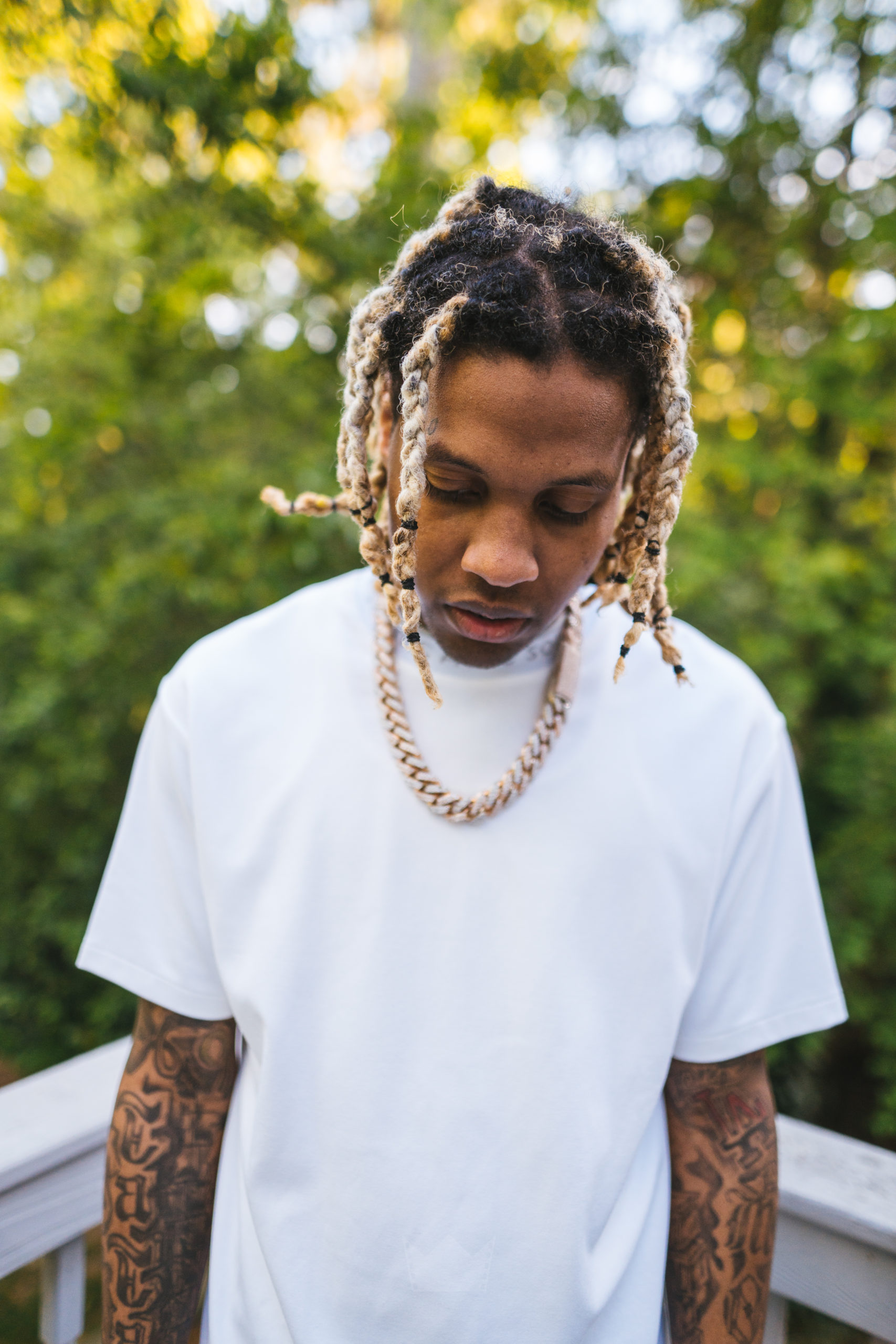
It’s been years since Lil Durk left the South Side of Chicago, but the South Side of Chicago has never left Lil Durk. Across five albums and 12 mixtapes, the rapper has used his upbringing in the city’s Englewood neighborhood as both motivation and muse. Growing up as Durk Banks amidst one of the highest crime rates in the country, Lil Durk first emerged during the city’s drill music boom of the early 2010s. But while most of the figures from that era have since dropped off, the 28-year-old performer persevered, enduring label drama, shifting tastes, and run-ins with the law to become one of the most prolific storytellers in all of rap. With his keen sense of melody and unfiltered dramatizations of life on the street, Durk has never shied away from a past that included selling drugs and gang-related dust-ups, even as his profile continues to rise. This past summer, he could be seen jet-skiing at Nike Headquarters alongside Drake in the video for the Canadian rapper’s single “Laugh Now, Cry Later.” “Even though I got a case, I’ma do what it take,” Durk sings in his patented auto-tune. It reads as a mission statement: that no matter what comes his way, he’ll keep going. Durk, who just released his latest single “Backdoor,” recently connected with another Chicago legend, the former NBA superstar Dwyane Wade, to talk about the city that made them, turning self-doubt into motivation, and the Drake effect.
———
LIL DURK: What’s up, bro?
DWYANE WADE: I’m good. How are you?
DURK: I’m doing good. Just chilling in Atlanta.
WADE: They got you working?
DURK: Yeah, of course. 24/7, I can’t stop.
WADE: You wouldn’t want it no other way.
DURK: I’d rather be locked in working, so that’s the way things go, for real.
WADE: When I got the call to do this interview, I was excited, because as you know you’re my son’s [Zaire] favorite artist. I had to listen to you a lot this summer in the gym. You’re loved here, so it’s an honor for me to be able to have this moment with you.
DURK: I appreciate it.
WADE: When I knew I was going to do this interview, I reached out to him and said, “Yo, if I had the opportunity to ask him something, give me one or two things.” And he sent it over in two minutes. So I’m going to start with those two things. He wanted to know, how did you overcome adversity? In the music game, it took you a minute to get here, so what was that thing that kept you focused?
DURK: First and foremost, I think it’s got to be in you. It’s got to be fun, but it’s got to be work at the same time. I ain’t never stopped. I stayed focused and motivated. But I think what kept me motivated would be the hate, the doubt, and being counted out. That just made me more hungry.
WADE: That’s very similar to what he’s going through, except in sports. And I know, because I dealt with the same thing.
DURK: We’re built like that, so that’s why we’re here.
WADE: His next question is, what’s up with that YnG DnA [the clothing line launched by Dwyane Wade and Gabrielle Union] gear he sent you?
DURK: Oh, I see where he’s going with it. When he first hit me with it, he sent me a first package, but I ain’t ever get it. When I told him, he got right back on it and I got another package. He’s passionate. I told him, “Any time you’ve got anything you want me to do, send it. I’m going to post it.”
WADE: That’s love. I know it’s going to mean a lot to him knowing that I was able to ask those two questions for him. But just to get into what you’ve been doing right now, obviously you were on a feature with Drake for his single “Laugh Now, Cry Later.” Talk about how it came about.
DURK: It was so crazy. He told me, “I want you on my album.” So when his last album came out, and I wasn’t on it, I was like, “Damn.” As time went on, I was locked in on my own music, and I checked my DMs one day, and he’s like, “I still want you on my album.” So, I’m like, “Okay, okay.” I thought he was playing again. Then he called me.
WADE: That’s a vibe. How do you think it will impact your career?
DURK: I call it the Drake effect. I got so many things surrounding me right now that I know came from his way, and my way from just working. It’s about taking the opportunity, risking it in a good way, and holding your own. That’s all. If you can’t hold your own, then that’s when they make you look how you can’t do it without Drake.
WADE: Right. To get on the phone with Drake, and then handle it like you did, that makes other artists say, “Okay, I need him on mine.”
DURK: It was crazy, though. I told him, “I’m going to stay true to myself on the song. I’m just going to half-talk.” He’s like, “Go and do you.” So when I did the verse, this is around corona time, the studio shut down at a certain time. So I sent him the verse back and left. He called me like, “Man, I need you to go longer.” I was like, “Fuck, I’ve already gone.” That’s why the verse is so short.
WADE: Me and Z were in a car one day listening to the song, and we were like, “Man, we need him to go longer.” But I do like that you just gave us a little bit. It just gets everybody a little more thirsty to see what comes next.
DURK: I appreciate it. I just want to go crazy.
WADE: Fact. We have something in common, which is growing up in Chicago. I understand how that helped me get to where I am. Talk about what the city means to you and what it was like growing up there.
DURK: Chicago made me who I am today. It raised me like a different type of breed. I got 10 senses. Just born different, the way I grew up without a father, and Mama being single and trying to get it going. I was always bad, ditching school, out there doing those types of things. But everything I did was for a reason. I wouldn’t change nothing.
WADE: No doubt. There’s this pride of growing up in Chicago. You’re proud when someone says, “Where you from?” It’s like, “I’m from Chicago.” It’s different.
DURK: It’s crazy.
WADE: Can you talk a little bit about your single “The Voice”?
DURK: I’m speaking out, being a voice for the people who ain’t got one, who are incarcerated, who are going through their struggle, who ain’t got the connections. I’m representing the streets, representing prison life. I feel like everybody can have a Drake song if I’ve got one.
WADE: Like you said, it’s about experiences. A kid like my son, who had different experiences than you, can still feel like he knows you, because he’s able to live through your experiences.
DURK: The goal is to capture everybody. If you grew up in the suburbs, if you grew up in the hood, if you grew up in a different city, you still can relate.
WADE: I’m 38, and I’m aging out of this new era of music. So I need you to describe something to me. What does “drill” mean?
DURK: Drill music is the raw, rowdy music, the turn-the-club-up-instantly-type vibes, just shaking the whole club inside out.
WADE: See? I’m getting old. You’re turning up, and I’m turning down a lot nowadays.
DURK: But honestly, I never looked at myself as a drill artist. I came from that era, but I was always the melody guy. At the time, ain’t nobody understand. They always act like, “Why are you singing?” But then, I just let it go, like, “Nah, this is me.”
WADE: Obviously, the game has been changing. Right now, we’re in this space where it’s all about streaming. When I first got into music, that wasn’t the thing. I remember when it was illegal to go online to get people’s music.
DURK: LimeWire.
WADE: All day. That’s where I got all my music from in college. I ain’t had no money. Has it affected how you make or release music?
DURK: I look at it like a blessing, because even if you’re not trying to hear the music, you’ll always see it in your face. It’s just easier now. You ain’t got to have no money. You can do it off YouTube. A stream is a stream.
WADE: That’s dope. I didn’t know that counted as a stream.
DURK: Any time a song plays, it’s a stream. That’s why it’s important to promo your music.
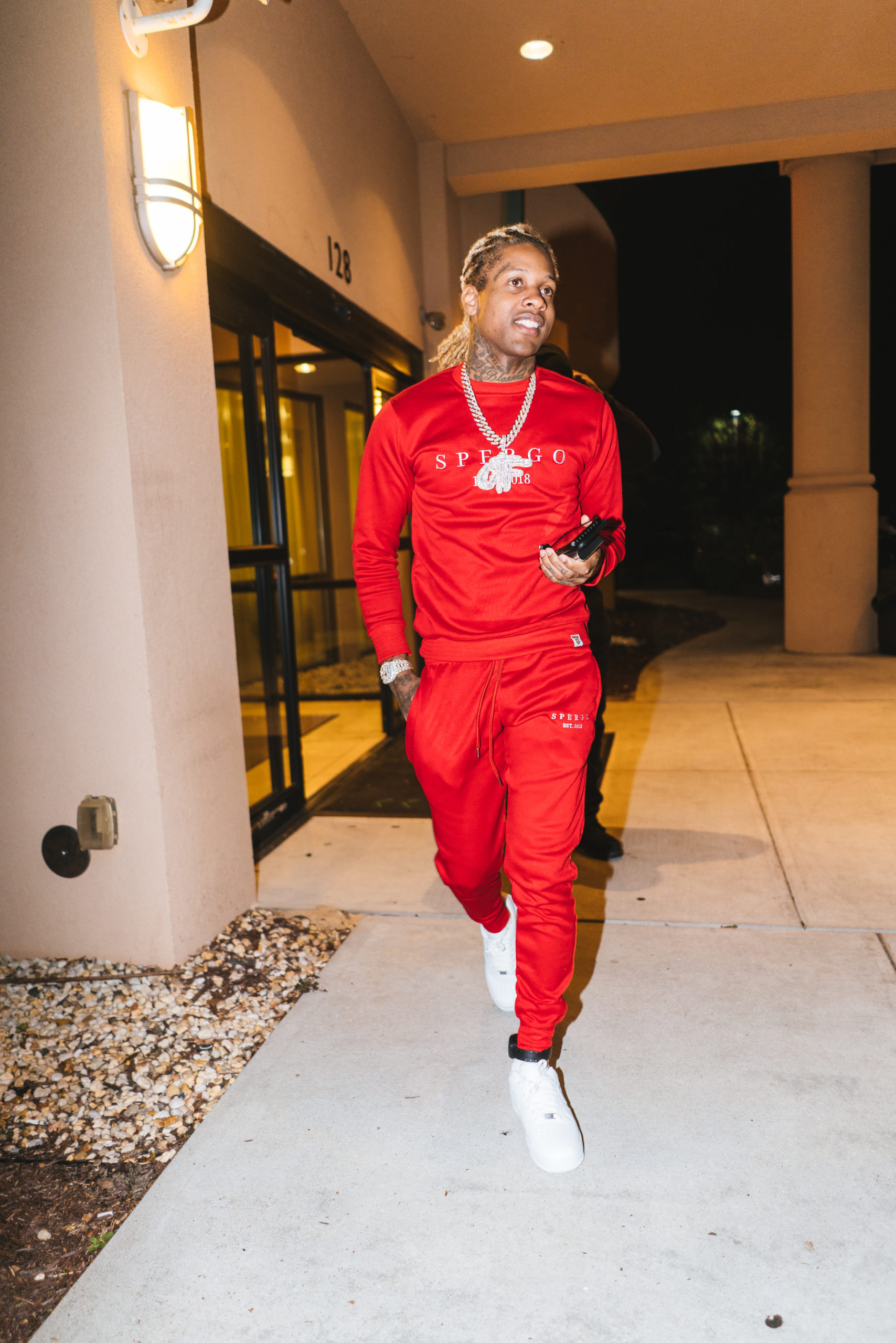
WADE: You just did a single with Drake, you’ve been on a song with Future, with Roddy Ricch, with Nicki Minaj. Who else do you want to work with?
DURK: I really want to do something with Rihanna. If she called me right now, I already got three or four songs ready for her.
WADE: Once she reads this interview, she’s going to put it on her radar.
DURK: I like Billie Eilish, too. I ain’t going to lie.
WADE: Over these last few years, how do you feel like you’ve grown as an artist?
DURK: I used to go into the studio and make 15 songs, but not all 15 were hard. So, when I started turning 15 songs into five hard ones, that’s when I knew I was becoming a better artist. Instead of 50 people being on stage with me, when I say, “I just want me on the stage,” that’s when I knew I was becoming a better artist.
WADE: I grew up a basketball player, but I wanted to be a rapper. When did you know music is what you wanted to do for the rest of your life?
DURK: I was at a point in my life where I was blind. I didn’t know what was going on, or what was going to be next for me. I used to sit back and be like, “Where am I going to be in life?” I was a seller at 17, so it was either death or jail, and I was like, “Man, there’s got to be a different route. I got to change the cycle.” Chief Keef started it. He’s the one who changed the cycle for us, and we just ran with it.
WADE: Is there anything else that you want to do outside of rapping?
DURK: I want to act. Will Smith could call me about a part tomorrow. I want to be prepared.
WADE: You’ve already experienced so many other people and other feelings that you can just pull from that if you have to play a character.
DURK: To be honest, I was like, “I ain’t taking no acting class. I ain’t going to be talking to no therapist.” But now, I understand life. I used to have anger management problems and I used to think everybody was against me when they tried to make me go take classes. But everything worked out perfect.
WADE: I’m an advocate for therapy. I went 37 years of my life like, “I don’t need no therapy.” And when I retired from the NBA, I was like, “I need to talk to someone. I need to have someone to be able to channel this anger, this rage, the things that I’m missing. I’m used to playing in front of 20,000 people screaming my name, and all this stuff is gone.” So, I needed a therapist, somebody to guide me through this change in my life.
DURK: And you weren’t scared to do it.
WADE: Facts. Do you doubt yourself as an artist? And if you do, how do you overcome that doubt?
DURK: I used to doubt myself a lot, where the mood in Chicago was like, “Oh, I’m Chief Keef.” I used to take that real personal, where it’s like I ain’t who I think I am. They ain’t put me on the [XXL]freshman cover. They ain’t paying me for shows. They want me to come free, but they want to pay this other artist. I used to always have doubt, but it made me want to go so hard because I’ve got something to prove.
WADE: I feel that. How did it feel when that deluxe version of your album Just Cause Y’all Waited 2 was number two on the Billboard 200 chart?
DURK: I felt so good. I had to keep asking my team, “Is this the real deal, boys? Is this for sure? I don’t want to go on Twitter and Instagram and say something and it ain’t it.” Now I’m looking at it like, “Okay, I’m just a step away from number one. What can I do differently to change that?”
WADE: Fact. We all need things to be a certain way to perform a certain way. My team knew when I came into the arena in Miami that I needed my jersey seamed a certain way. I needed my socks to be that one way. Whatever it takes, right? Tell me, when you’re in the studio, what do you need to feel like you’re in your vibe?
DURK: I really like people in the studio with me now, because I’m more confident with my music. That’s how I know if it’s hard. When the whole studio is rocking their head, it’s cool.
WADE: But you don’t need no candles? You don’t need no vibe set-up?
DURK: I ain’t going to light candles. I like it real cold in the studio. Seeing Future and Thug record outside the booth next to the engineer, I started doing that, too. So it was like, “Yep, I got the whole mood set up.” A lot of candy, too. I’m a candy head. Twix, Starburst, and Skittles.
WADE: I love all that. So, I’m going to end with this. You faced a lot of hardship in your life. Talk about overcoming that hardship, and what you would tell people who are going through their own tough time right now, with everything we’re dealing with in the world and the pandemic? What would you say to them?
DURK: I would say be true to yourself. Everybody goes through hard times. Stay focused and just lock in.
WADE: Well keep inspiring people with your story and your music, and take people on this journey with you. We all have different trials and tribulations, and to be able to notice someone else out there is going through the same things, it matters. So understand that your music matters. And enjoy this process, because the NBA went like that. You know what I mean? So enjoy this process, because it’s a good one.

